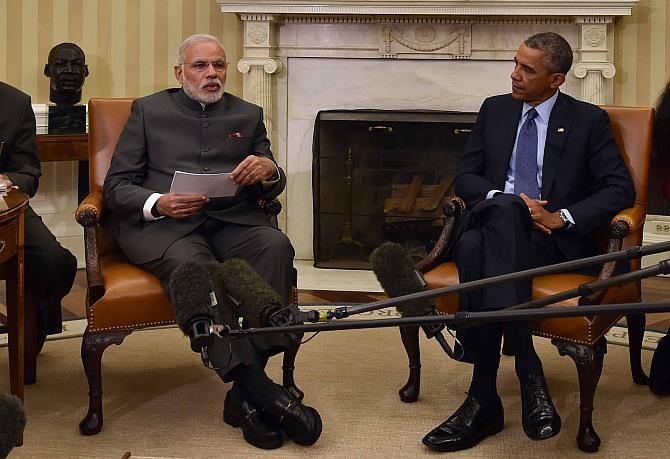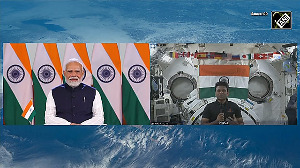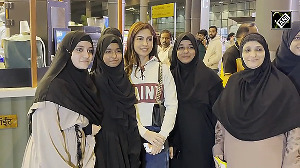 Holding that transparency, predictability and upholding the rule of law are essential for better ties, a senior American diplomat said the US is keen to restart work on a Bilateral Investment Treaty (BIT) with India for deepening economic relationship.
Holding that transparency, predictability and upholding the rule of law are essential for better ties, a senior American diplomat said the US is keen to restart work on a Bilateral Investment Treaty (BIT) with India for deepening economic relationship.
"The Indian-US bilateral investment treaty has stalled a bit and it is time to get it back on track," Assistant Secretary of State for Economic and Business Affairs Charles Rivkin said.
Rivkin, who is in the country to participate in the maiden India-US Technology Summit to be held in New Delhi next week, said the last meeting on the pact took place in February this year and the US is eager to know and address the obstacles surrounding it.
"If we can identify what the blocks and obstacles are, we can move forward...It (BIT) is very important to us and it can be a terrific foundation for the bilateral economic relationship," he said, adding that the US has already had 15 rounds of negotiations with China on a similar deal.
He said the Narendra Modi government is also working to change things and specifically pointed out to Prime Minister's comments about need to up the country's low ranking in the ease of doing business from the current 142.
"There seems to be an impatience on behalf of the Indian government to change and get things going. I'd like to believe that part of that could be a BIT which could set the rules of the road between our two countries and facilitate two-way investments and ultimately trade," he said.
On the FDI flows into the country, the senior Obama administration official acknowledged that Modi had a terrific visit in the US earlier, but underscored that investors need more than perceptions for taking their call.
"American investor is not going to make an investment based on press release for a visit or perceptions, it will be about fundamental things," he said. "When American investora approach any market, they are going to look for at least presence of transparency, predictability and the rule of law," Rivkin said.
He specifically referred to the contentious issue of Intellectual Property Rights (IPR), which has dominated the agenda of visiting US officials for some time, describing it as very crucial, and cited the example of entertainment industry.
Rivkin said he does not understand the logic against protection of intellectual property and added that having strong laws is in the interest of India and will help the country realise its true potential.
The visiting diplomat said IPR protection is a key agenda for his visit. He said he will be meeting Bollywood personalities, executives from American media companies having a presence in the country and is also scheduled to hold a dinner meeting with Amitabh Jhunjunwala of Reliance, which has investments in US entertainment companies.
He said Bollywood loses 40 per cent of its revenue every year to IPR infringments and safeguarding it is essential to protecting jobs in the industry.
Rivkin said IPR protection will also strengthen American investments in the country. "You will see a ramp up of investment if investors feel that their investment can be protected," he said.
Rivkin refused to comment on the issues surrounding civil nuclear energy, where India is yet to make any major headway in spite of signing a deal for cooperation in 2008.
On the truce reached between the two countries to resolve the WTO's Trade Facilitation Agreement imbroglio, Rivkin welcomed it, saying this will help other developing countries as well.
"It is not done yet, of course it was a bilateral discussion, but we are very excited about what it portends ...It's the first multilateral deal done at WTO in 30 years, it is a big deal, and it's going to reduce costs for transactions," he said.
As for his expectations from the upcoming tech summit, Rivkin said he is looking forward to discussions which promise to be very productive.
"The US and India have a lot in common and learn from each other. I think it would be a very useful discussion," he said.










